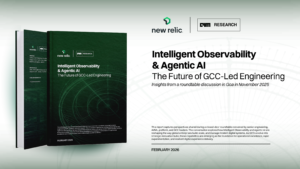AI leaders bear the responsibility of guiding the job market amidst the rise of intelligent automation. They must prioritize transparency, communicating openly about which roles may be automated, and provide support for reskilling initiatives. Encouraging a culture of continuous learning within organizations is vital, as is advocating for policies that facilitate a smooth transition for the workforce, ensuring they remain resilient in the face of technological change.
We had a roundtable discussion on the topic with a set of experienced and distinguished leaders in the industry. The session was moderated by Kashyap Raibagi, Associate Director – Growth at AIM Research along with panelists Trey Connoly, VP, Data & Analysis at Digitas North America, Swati Kirti, Senior Director AI/ML at Walmart Global Tech, Raghu Banda, Sr. Director, AI Product Management at SAP Labs and Rathnakumar Udayakumar, Co-Founder and Head of Product at Nextazy.
The Impact of Technological Advancements on the Work Landscape and Employment Trends
I’ve definitely seen an impact. What I can say is there’s been a noticeable shift in our job roles at Digitas, as well as our skill requirements within our organization. I’d say that some routine tasks, post-pandemic, that were traditionally performed by humans are now being automated. We’re seeing that across multiple different industries.
But what this really has done is led to a decrease in demand for those certain roles. I can share a recent use case: instead of developing certain creative for advertising, where we would usually use a graphic designer, we’re utilizing AI-based tools to develop those computer-generated images. And this can be done in half the time. So, there’s been an impact. This also makes the case for the more we automate, the more we see the value in some of these other roles that we have, that involve critical thinking, complex problem-solving skills for things we can’t automate.
– Trey Connoly, VP, Data & Analysis at Digitas North America
Leveraging Data for Positive Impact on Frontline Workers in Retail
I have seen a lot happen in the past year to say that the advent of AI will not cause impacts or change the way people get hired. One very important point that is often missed out or not often called out is that if used the right way, it actually results in productivity gains for people to free up their time to do some higher-order activities.
In retail, people spend a lot of time going through data on how sales are happening or where to optimize. But if used in the right way and in the right places or touchpoints in the product, Gen AI can automate many decision-making processes. So, on a given day, you don’t have to wonder what should be the priority to drive the KPIs. Insights can be surfaced in a very natural language way so nobody needs a specialized skill to understand it.
So, using that vast amount of data is already available in almost every aspect of business today, but with the right use of AI, we can use it in a way that nobody needs special skills to consume the information but make it more actionable for them.
– Swati Kirti, Senior Director AI/ML at Walmart Global Tech
Managing Complexity and Ethical Considerations in Global ERP Development
A company like SAP, being a European firm, also contributes to the reason why you see enhancements or new features in ERP products or business processes taking a bit longer. At the end of the day, it’s not just about delivering a product to the end user; it’s also about taking care of your customer’s customer. This is where complexity doubles, or I would even say quadruples, because you’re not only dealing with one customer but also their customer. When this complexity is compounded and you’re operating in different geographies, building products that can be used across borders, including countries like China and Russia, ethical practices need to be built into the products, which takes on a much bigger dimension.
We do have teams focused predominantly on understanding these challenges and how to address them. While we may not have something like a social scientist per se on our team, roles such as product managers, program managers, or product owners wear different hats when working on these additional features.
In essence, yes, this will have an impact in different ways.
– Raghu Banda, Sr. Director, AI Product Management at SAP Labs
Ethical Considerations in Business Practices for Organizations of Varying Sizes
I think it’s a first-world problem in terms of company sizes. I’m not referring to the country here, but rather the size of the company as the parameter for evaluation. For instance, you can be Walmart or you can be a smaller company like Nextazy. If Walmart makes a mistake like that, they have to pay for it. So, that’s the brutal truth. It boils down to the size of the company.
Walmart, Amazon, or Facebook can’t get away with things like this because it’s a PR nightmare. Nobody’s worried about what a smaller company like Nextazy is doing. I would always opt for an AI tool over a freelancer.
But we should all understand the hierarchy. Previously, it was in-house employees over freelancers. People opted for freelancers because it was the easier, more cost-effective option. However, there were always risks involved, such as data leakage and privacy infringement. Unless you’re big enough to handle it, freelancers are the go-to choice. With AI tools, there are more options available, especially for larger companies. You can explore different designs and choose what works best for you. If you go to a freelancer, it’s a two-week job and you have to pay out of your pocket. That’s how it worked.
– Rathnakumar Udayakumar, Co-Founder and Head of Product at Nextazy





